The Best Server For Home Use
Choosing the best hardware server for home use depends on your specific needs, budget, and technical expertise. While home server requirements are typically less demanding than those of enterprise environments, it's essential to select hardware that suits your intended purposes and can grow with your needs.
Step-by-step guide
Here's a step-by-step guide to help you choose the best hardware server for home use:
-
Identify Your Use Cases: Determine the primary purposes for your home server. Common use cases include file storage, media streaming, home automation, hosting personal websites or blogs, and running virtual machines for testing and development.
-
Set a Budget: Determine how much you're willing to spend on your home server. This will help you narrow down your options and avoid overspending on features you don't need.
-
Choose the Form Factor: Decide on the form factor of your server. Common options for home use include tower servers and compact, energy-efficient options like mini-ITX or micro-ATX systems.
-
Select the Right CPU: Choose a CPU that matches your workload. For basic file storage and media streaming, a lower-end CPU may suffice. If you plan to run virtual machines or more demanding applications, opt for a more powerful processor.
-
Memory (RAM): Ensure your server has enough RAM to handle your tasks comfortably. A minimum of 8GB is often recommended, but consider 16GB or more if you intend to run VMs or resource-intensive applications.
-
Storage Considerations: Decide on your storage configuration. You can use traditional hard drives (HDDs) for large data storage and consider solid-state drives (SSDs) for faster access times, especially for the operating system and frequently used applications.
-
Network Connectivity: Ensure your server has sufficient network connectivity options. Gigabit Ethernet is standard for home servers, but consider faster options if you have a high-speed internet connection or plan to use the server for media streaming.
-
Expansion and Upgradability: Look for a server that offers room for expansion. This includes available PCIe slots for adding network cards, additional storage controllers, or other expansion cards.
-
Energy Efficiency: Consider energy-efficient hardware to keep operating costs low. Look for components with good power efficiency ratings.
-
Operating System Compatibility: Check that the server hardware is compatible with your chosen operating system (e.g., Windows Server, Linux distributions, or NAS operating systems like FreeNAS).
-
Remote Management: If you plan to manage your server remotely, look for hardware that supports remote management tools, such as IPMI or a built-in management controller.
-
Noise and Heat: Be mindful of noise levels, especially if the server will be placed in a living area. Some servers are designed to run quietly, while others may require additional noise dampening.
-
Backup and Redundancy: Consider backup solutions and redundancy options to protect your data. RAID configurations, external backups, and uninterruptible power supplies (UPS) are worth considering.
-
Security: Implement security measures, such as strong passwords and regular software updates, to protect your home server from potential threats.
-
Support and Community: Check if the hardware you're considering has good community support and documentation, as this can be helpful for troubleshooting and getting assistance with any issues that may arise.
-
Plan for Growth: Think about future expansion and scalability. While your initial needs may be modest, your requirements could grow over time.
Remember that the best hardware server for home use is one that meets your specific needs and fits within your budget. Take your time to research options, read reviews, and consider your long-term requirements to make an informed decision.
3 Best DELL Servers for Home Use
For home use, you don't typically need high-end enterprise-grade servers. Instead, you can consider Dell's small form factor or tower server options that are energy-efficient and offer adequate performance for home server applications.
Dell PowerEdge T140
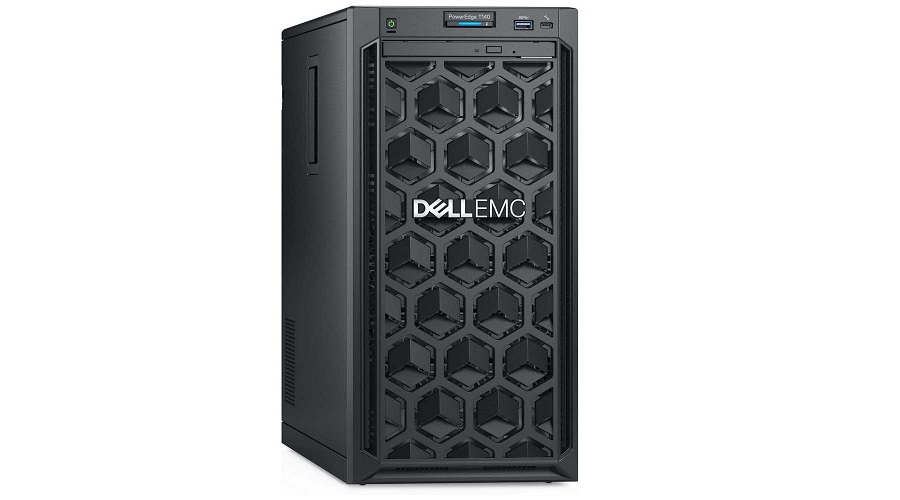
The Dell PowerEdge T140 is a tower server designed for small businesses and remote offices, but it's also a great option for home users. It's energy-efficient, quiet, and suitable for various home server tasks.
Key Specifications:
-
CPU Options: Supports Intel Xeon E-2100 series processors.
-
Memory: Up to 64GB of DDR4 ECC memory for multitasking and virtualization.
-
Storage: Multiple drive bays for SATA HDDs or SSDs, with RAID support.
-
Network: Gigabit Ethernet for standard network connectivity.
-
Form Factor: Tower design, which is suitable for home use.
-
Management: Basic management features for remote monitoring.
Dell PowerEdge T340
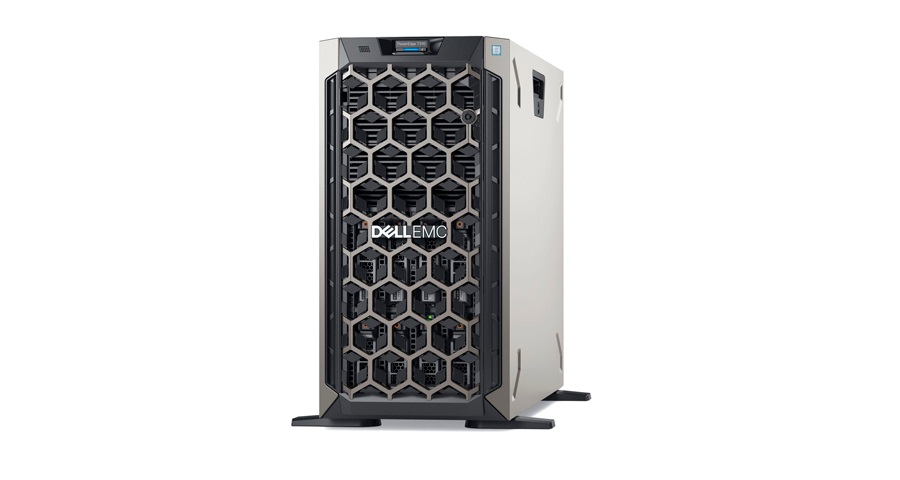
The Dell PowerEdge T340 is a step up from the T140 and offers more performance and expandability. It's ideal for users with slightly higher demands or those planning to run virtualization projects at home.
Key Specifications:
-
CPU Options: Supports Intel Xeon E-2200 series processors.
-
Memory: Up to 128GB of DDR4 ECC memory for running multiple VMs or resource-intensive applications.
-
Storage: Multiple drive bays for SATA HDDs or SSDs, with RAID support.
-
Network: Dual Gigabit Ethernet ports for redundancy or additional connectivity.
-
Form Factor: Tower design, suitable for home environments.
-
Management: Basic management features for remote monitoring.
Dell EMC PowerEdge T440
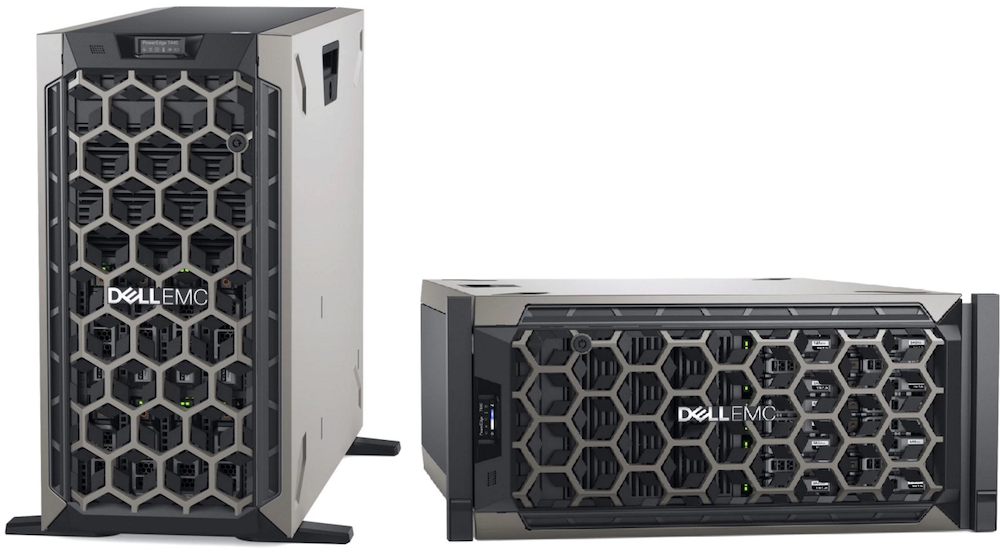
The Dell PowerEdge T440 is a more robust tower server designed for small to medium-sized businesses but can also be used for power users who require additional performance and scalability for home server projects.
Key Specifications:
-
CPU Options: Supports Intel Xeon Scalable processors for better performance.
-
Memory: Up to 768GB of DDR4 ECC memory for demanding applications or multiple VMs.
-
Storage: Multiple drive bays with a variety of storage options, including SAS, SATA, and NVMe SSDs.
-
Network: Dual Gigabit Ethernet ports with optional 10GbE upgrades.
-
Form Factor: Tower design with ample room for expansion.
-
Management: Enhanced management features for remote monitoring and administration.
When selecting a Dell server for home use, consider your specific requirements, budget, and future growth plans. Also, make sure to verify the latest options and consult with our specialists to get the most up-to-date recommendations.
3 Best HP Servers for Home Use
For home use, you can consider Hewlett Packard Enterprise (HPE) servers that are energy-efficient, compact, and suitable for various home server tasks. Here are three HPE server models that were suitable for home use:
HPE ProLiant MicroServer Gen10
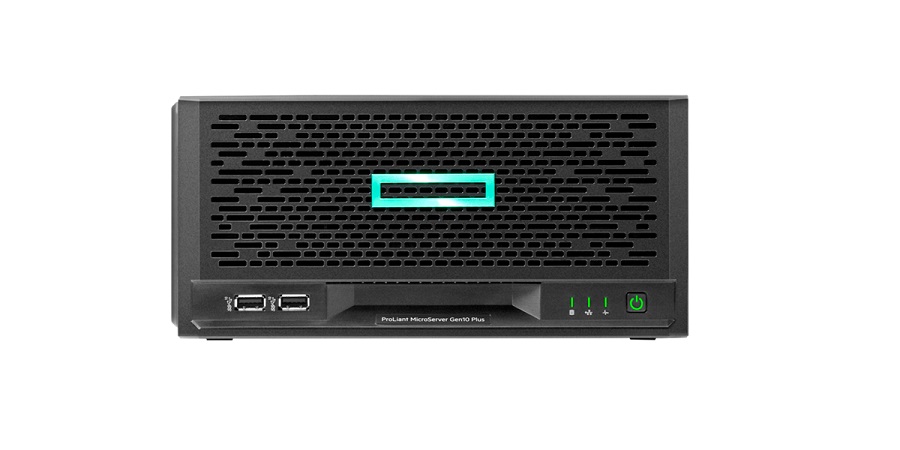
The HPE ProLiant MicroServer Gen10 is a compact, entry-level server designed for small offices and home use. It's energy-efficient and budget-friendly, making it an excellent choice for basic server tasks.
Key Specifications:
-
CPU Options: Supports AMD Opteron X3000 series processors.
-
Memory: Up to 32GB of DDR4 ECC memory for basic multitasking and file storage.
-
Storage: Four drive bays for SATA HDDs or SSDs, with RAID support.
-
Network: Gigabit Ethernet for standard network connectivity.
-
Form Factor: Small tower design, suitable for home environments.
-
Management: Basic management features for remote monitoring.
HPE ProLiant ML30 Gen10
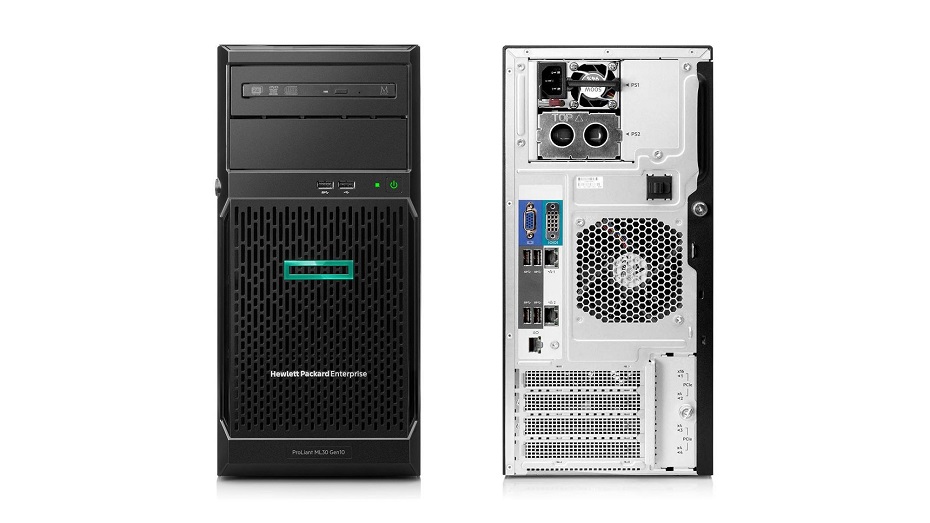
The HPE ProLiant ML30 Gen10 is a more powerful tower server suitable for home users with higher performance requirements or those planning to run virtualization projects.
Key Specifications:
-
CPU Options: Supports Intel Xeon E-2100 series processors for improved performance.
-
Memory: Up to 64GB of DDR4 ECC memory for running multiple VMs or more resource-intensive applications.
-
Storage: Multiple drive bays for SATA HDDs or SSDs, with RAID support.
-
Network: Gigabit Ethernet for standard network connectivity.
-
Form Factor: Tower design, suitable for home environments.
-
Management: Basic management features for remote monitoring.
HPE ProLiant ML350 Gen10
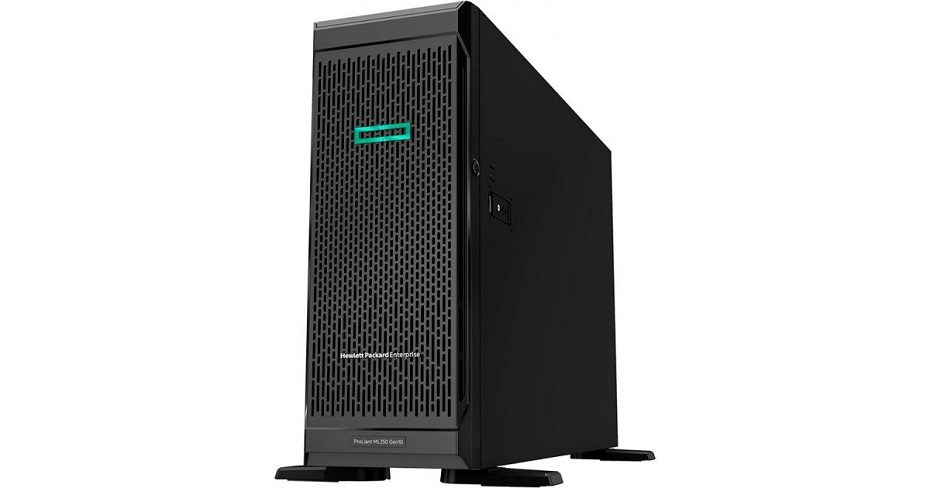
The HPE ProLiant ML350 Gen10 is a more robust tower server designed for small to medium-sized businesses but can also be used for power users who require additional performance and scalability for home server projects.
Key Specifications:
-
CPU Options: Supports Intel Xeon Scalable processors for enhanced performance.
-
Memory: Up to 3.0TB of DDR4 ECC memory for demanding applications or multiple VMs.
-
Storage: Multiple drive bays with a variety of storage options, including SAS, SATA, and NVMe SSDs.
-
Network: Dual Gigabit Ethernet ports with optional 10GbE upgrades.
-
Form Factor: Tower design with ample room for expansion.
-
Management: Enhanced management features for remote monitoring and administration.
When selecting an HPE server for home use, consider your specific requirements, budget, and future growth plans. Additionally, verify the latest options and consult with Servermall specialist to get the most up-to-date recommendations.